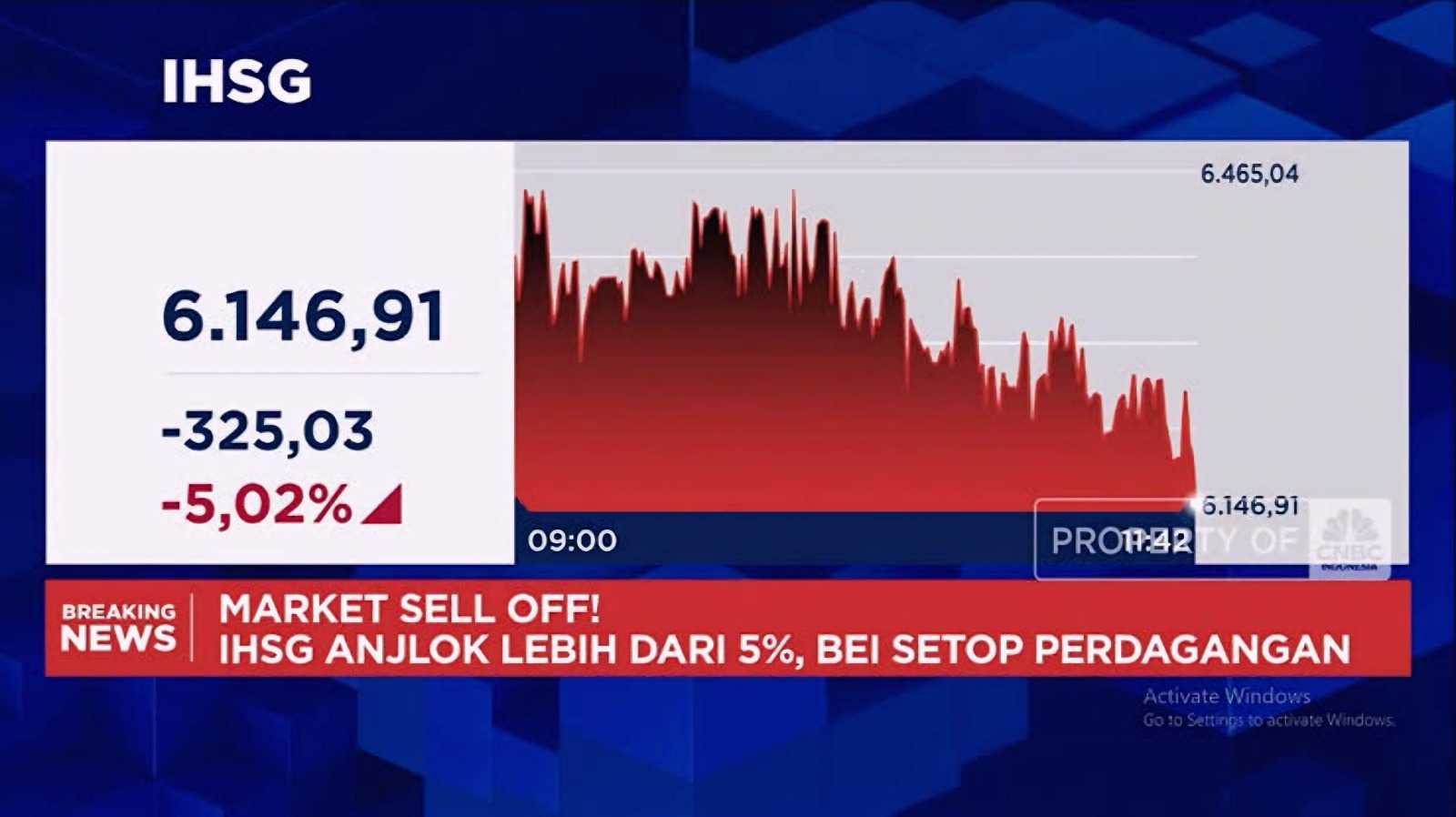ITS Expert: IHSG Decline Has Significant Impact on Indonesian Economy

Dr Muhammad Saiful Hakim SE MM PhD, a researcher at the ITS Business Analytic and Strategy Laboratory, provided an analysis related to the decline in the Composite Stock Price Index (IHSG).
ITS Campus, ITS News — The decline in the Composite Stock Price Index (IHSG) by five percent on March 18, 2025, which triggered a trading halt, has become the focus of various parties, including academics. Deputy Dean of the Faculty of Creative Design and Digital Business (FDKBD) of the Sepuluh Nopember Institute of Technology (ITS) Dr. Muhammad Saiful Hakim SE MM PhD assessed that this sharp decline was not only a surprise to the market, but also had a significant impact on the Indonesian economy.
According to the financial management researcher, the JCI is an important indicator for national economic stability because it reflects investor confidence in the capital market. If the index drops sharply, companies will have difficulty obtaining funding for business expansion, while investors will be more careful in investing their capital.
The weakening of the IHSG also encouraged investors to withdraw their funds and switch to safer assets. If the sell-off occurs massively, the capital market will be increasingly depressed and can slow economic growth. “A healthy capital market allows companies to obtain funding for business expansion,” said the lecturer who is usually called Saiful.
The lecturer who is also active in the ITS Business Analytic and Strategy Laboratory explained that the decline in the IHSG this time was influenced by domestic and global factors. One of the triggers was the downgrade of Indonesia’s investment rating by Goldman Sachs. This condition caused foreign investors to reduce exposure in the Indonesian capital market, triggering a large number of stock sell-offs that further depressed the IHSG.
In addition, the issue of the replacement of the Indonesian Minister of Finance also worsened market sentiment. The imbalance in the State Budget (APBN) also added to investor concerns. This situation weakened market confidence, so that investors tended to withdraw their capital. “Most of the selling actions were carried out by foreign investors,” added Saiful concerned.

The Composite Stock Price Index (IHSG) plunged more than 5 percent, triggering a trading halt on the Indonesia Stock Exchange (IDX) (source from CNBC Indonesia)
The decline in the JCI not only impacts investors, but also affects the stability of the national economy. Large capital outflows increase demand for the US dollar, which has the potential to weaken the rupiah exchange rate. If this pressure continues, people’s purchasing power could also be affected.
The instability of the capital market also has an impact on the real sector, especially in terms of investment. Companies that have difficulty obtaining funding tend to delay business expansion. If this condition continues, the risk of layoffs (PHK) can increase, which ultimately slows economic growth.
Although such incidents are rare, the lecturer at the ITS Business Management Department emphasized the importance of understanding whether this decline is just a temporary shock or will continue in the long term. If this is just a temporary reaction, the market will likely recover soon. However, if the condition continues, the impact could be more serious on the economy. “Investors need to pay attention to market trends before making decisions,” he reminded.
As a mitigation measure, the Indonesia Stock Exchange (IDX) has implemented a stock buyback policy without shareholder permission, which allows companies to buy back their shares to maintain price stability. In addition, the government needs to ensure a more convincing fiscal policy to maintain investor confidence.
The doctoral graduate from National Yunlin University of Science and Technology, Taiwan, suggested that investors adjust their decision to sell or hold stocks to their respective financial goals. If the investment is long-term, holding on to stocks can be a better choice. However, for those who need funds in the near future, selling with the risk of loss needs to be considered. “The best decision depends on market conditions and the investor’s financial strategy,” said Saiful.
In the next few months, the prospect of IHSG recovery still depends on the response of foreign investors to global economic conditions and government policies. Saiful assessed that certainty in fiscal policy and market regulations are the main factors in attracting capital that has left. “If fiscal conditions and market regulations can provide certainty, foreign capital flows can return, and IHSG will gradually recover,” he concluded optimistically. (ITS PUBLIC RELATIONS)
Reporter: Nadhifa Raghda Syaikha
Translator : Devinka Mutianeira
Related News
-
ITS Develops Four‑Legged Dog Robot with Sensors and Navigation
ITS Campus, ITS News – Institut Teknologi Sepuluh Nopember (ITS) is further solidifying its role in robotic technology
March 22, 2025 11:03 -
ITS Mathematics Alumnus Creates EEG-Based Brain Research Technology
ITS Campus, ITS News — One of the graduates of the Institut Teknologi Sepuluh Nopember (ITS) has succeeded in
March 22, 2025 11:03 -
ITS Promotes FAST-D Scholarship, Unggul, and Global Excellence Scholarship
ITS Campus, ITS News – Institut Teknologi Sepuluh Nopember (ITS) always shows its commitment in supporting students to develop their best
March 22, 2025 11:03 -
Supporting the Implementation of SPMB 2025, ITS Develops the SENOPATI Platform
ITS Campus, ITS News – Showing its contribution in the field of education, Institut Teknologi Sepuluh Nopember (ITS) has redeveloped a platform
March 22, 2025 11:03
